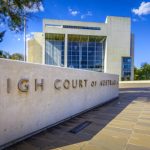As Tensions Mount With China, Dan Duggan’s US Extradition Looks Increasingly Political

The most recent development in the case of former US Marine Corps fighter pilot Daniel Duggan, who’s currently held in isolation at Lithgow maximum-security prison, involves suggestions that the 54-year-old was lured back to Australia from China to commence US extradition proceedings.
Australian federal police arrested Duggan in the NSW town of Orange on behalf of Washington on 21 October last year, in relation to a 2017 US District of Columbia grand jury indictment, which alleges he breached US arms control law whilst training Chinese pilots in South Africa over 2010 to 2012.
Attorney general Mark Dreyfus approved the 9 December US extradition request just prior to Christmas. And the Australian citizen, who left the US Marines in 2002 after 13 years’ service, has been remanded since October, under the terms of section 15 of the Extradition Act 1988 (Cth).
However, Duggan’s legal team asserts that the extradition is motivated due to rising military tensions between Washington and Beijing, which makes the alleged crimes filed against the father-of-six political in nature, which rules out extradition under the 1976 US-Australia extradition treaty.
During a 23 March hearing in Downing Centre Local Court, Magistrate Greg Grogin gave the pilot’s lawyers six extra weeks to obtain difficult to source documents, while the Inspector General of Security and Intelligence (IGIS) has since announced it’s inquiring into the legalities of the case.
Dangling a security clearance
Dennis Miralis, Duggan’s lawyer, flagged lodging a complaint with the IGIS, following his client’s arrest in October. And according to the Guardian this week, a chief concern put to the inspector is that the former US Marine major may have been lured back to Australia to facilitate his arrest.
Classed as an “extreme high-risk” inmate in the NSW prison system, Duggan came to Australia after having left the US military in 2002. The pilot now has an Australian wife and six locally born children. And he became an Australian citizen in 2012.
The US indictment alleges Duggan broke US law whilst he was involved in training Chinese fighter pilots at the Test Flying Academy of South Africa (TFASA) early last decade. The claims include his having taught how to land jets on aircraft carriers. And the academy had a presence in China.
After having sold his own 2005-opened joy flight business Top Gun Tasmania, the Australian pilot moved to China in 2014. And since 2017, Duggan had been listed as the general manager of AVIBIZ, an aviation consultancy company, located in China’s Shandong province, in the city of Qingdao.
And an assertion made in Duggan’s complaint to the IGIS is that he was “unlawfully lured” back here with the prospect of having received an ASIO clearance for an Australian aviation security ID card, which wasn’t forthcoming on return.
This sort of enticement is legal in the US, but not in Australia.
A Trump era indictment
The 2017 US District of Columbia indictment was unsealed in December 2022. It claims that Duggan breached section 2278 of the Arms Export Control Act 1976 (US), as it places the US president in charge of arms exports, which includes defence services of which Duggan allegedly supplied.
The document claims that Duggan was involved in a criminal conspiracy with eight others, who, over 2009 to 2012, sought “to export, or attempt to export, and propose the exportation of defence services to the People’s Republic of China in violation of an arms embargo”.
The indictment further suggests that Duggan was involved in a conspiracy to launder money originally located in the US “through a place not in the United States”, that being either Australia or China and South Africa, in order to facilitate the unlawful export of defence services.
Geopolitical tensions
“I don’t think it’s just a coincidence that the scare campaign about links with China coincides with the Australian government trying to persuade the Australian public to spend hundreds of billions of dollars on US and UK weaponry targeted at China,” Greens Senator David Shoebridge said recently.
“There is a concerted, multilayered political campaign by our government and the US government to persuade the Australian public to divert hundreds of billions… into the global weapons industry and to underpin this fear campaign directed at China,” he told Sydney Criminal Lawyers.
The Greens justice spokesperson was referring to the recently announced details of the AUKUS agreement, which will see our nation investing up to $368 billion on eight nuclear-powered attack submarines, built using US and UK technology, over the next two decades.
The acquisition of these submarines is a key component of the AUKUS, which has the clear aim of countering a rising China, with the official line propagated being that the East Asian giant poses a military threat to our nation, when the only threat it does pose is an economic one to the US.
The tensions with China have been cited by Duggan’s legal team as having motivated the extradition request, which is a claim supported by the fact that western pilots had been involved in training their Chinese counterparts for decades with the full knowledge of their various governments.
Indeed, during the same week that the AFP took Duggan into custody, the UK government announced it was investigating 30 former British military pilots over whether they were training Chinese army pilots, prompting our defence minister Richard Marles to say he’d do the same locally.
Floundering Australian sovereignty
Following the 20 March Local Court proceedings, Miralis told reporters that he’d requested 63 documents from numerous agencies, including ASIO and the AFP, which, in some cases, were proving difficult to obtain, and that’s why he needs the six-week-long adjournment.
At the recent Sydney instalment of the Belmarsh Tribunal into the plight of Australian citizen Julian Assange, who is similarly being remanded in a London prison as the US attempts to extradite him, a speech written by Duggan in prison was read out.
“When Australia’s sovereignty comes into question by politically motivated extradition requests of Australian citizens by any foreign state regardless of their might, Australia must disagree,” Duggan’s speech read.
Shoebridge further pointed out that, under the terms of the US-Australia extradition treaty, in order for such a process to take place, it must be shown that the same offences involved in the request are reflected in Australian law, and the attorney general has failed to do this as yet.
“Unfortunately, with Dan Duggan, as we’ve seen previously with Julian Assange and others, it appears the Australian government’s first interest is in doing the bidding of the United States,” the Australian Greens senator remarked.
“This is an unsettling pattern that doesn’t seem to be changed whether we have a Coalition or a Labor government in Canberra.”







